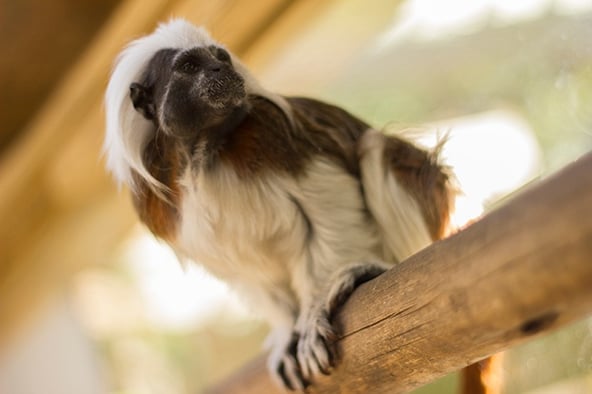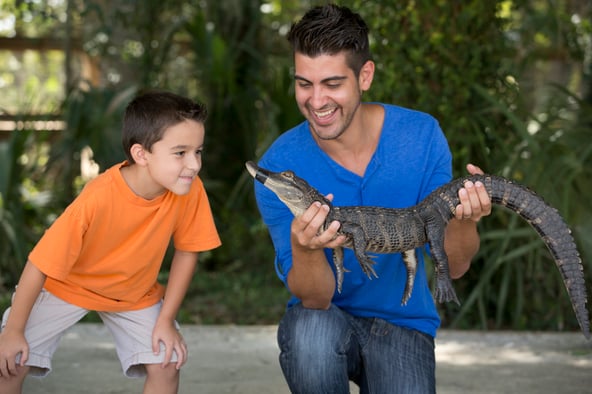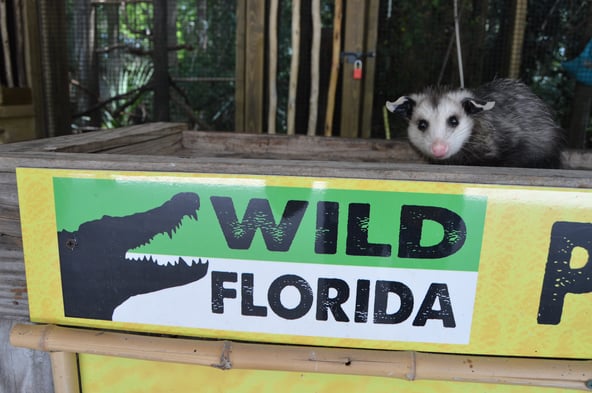Owning an exotic animal sounds like a cool idea when you compare it to owning a normal household pet, but when you stop to think about all the extra work (and potential danger) it involves, you might just change your mind. Every state has different regulations and requirements, but today we'll cover Florida. Before you go out and purchase a wild animal in Florida, it's important to know the rules and follow them in order to keep the animal safe and in a comfortable environment. Below, we’re sharing why owning an exotic pet isn't the best idea and everything you should know before making one a part of your family!

An exotic animal is any animal living outside of captivity that did not historically occur in Florida, meaning they have been brought to Florida by humans. According to bornfreeusa.org, there are four different categories states can fall into when it comes to the laws relating to private possession of exotic animals: B, B*, L, and N. Florida is in category B* and L. Category B* states, “Partial ban on private ownership of exotic animals — allows ownership of some exotic animals but precludes ownership of the animals listed.” Category L states, “Requires the 'owner' of the exotic animal to obtain a license or permit or to register the animal with state or local authorities to privately possess the animal (excludes states only requiring import permits).”
So you may be thinking, What exotic animals am I allowed to have in Florida? Well, Florida law states, “It is unlawful for a person to possess any Class I Wildlife unless the animal was in possession prior to August 1, 1980. Class I Wildlife includes but is not limited to the following: chimpanzees, gorillas, orangutans, baboons, leopards, jaguars, tigers, lions, bears, elephants, crocodiles, etc. Persons may possess Class II Wildlife if he or she obtains a permit from the Fish & Wildlife Conservation Commission. Class II Wildlife includes, but is not limited to the following: howler and guereza monkeys, macaques, cougars, bobcats, cheetahs, ocelots, servals, coyotes, wolves, hyenas, alligators, etc.”
So, although you can own an alligator in Florida, there’s a handful of restrictions that come with having your very own Fluffy that you need to be aware of. After figuring out if the exotic animal you wish to call your pet meets the Florida Fish and Wildlife Conservation Commission (FWC) Class I or II list, then you must meet the qualification requirements for a permit. Bornfreeusa.org states, “Applicants must be at least 18 years old and shall not have been convicted of any violation of captive wildlife regulations, any offense involving the illegal commercialization of wildlife, or offenses involving cruelty to animals, within three years of the date of application. They must also demonstrate no less than one year of substantial practical experience (to consist of no less than 1000 hours) in the care, feeding, handling and husbandry of the species for which the permit is sought, or other species, within the same biological order. Applicants must also document their experience.” You can learn more about the details here.

After meeting all of the requirements, applicants then must complete the Florida Captive Wildlife critical incident/disaster plan, License to Possess Wildlife for personal use form (if your exotic animal is a pet that falls into Class II), and post a Florida surety bond if required to obtain the license for your exotic pet. Sound like a handful yet?
Although exotic animals are adorable and loving (when they are taken care of properly), they’re a lot of work. They require special care, housing, diet, and maintenance. It’s known that these animals act their best when they are taken care of the way they would be out in the wild, meaning they aren’t left in small enclosed areas, they are surrounded by other animals, and they are fed the right food. It’s important to prepare your home and other animals if you decide to take on this responsibility. Just like humans, animals deserve an environment where they feel comfortable and loved. In circumstances when they aren’t treated properly, they become deprived and neglected, which can cause them to be aggressive or dangerous.

So, before you decide on owning an exotic animal in Florida, just be sure you’re ready for the commitment. Some exotic animals live more than 20 years… Now that’s a long-term commitment! If you have questions about what it means to care and own an exotic animal, ask any one of our zookeepers the next time you visit our Gator and Wildlife Park. They love and care for animals as if they were their own children and are always willing to help make sure all animals are in good hands!




